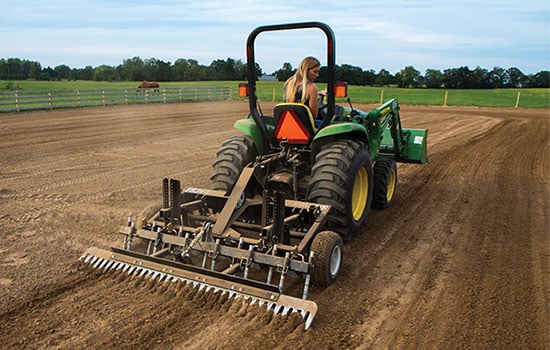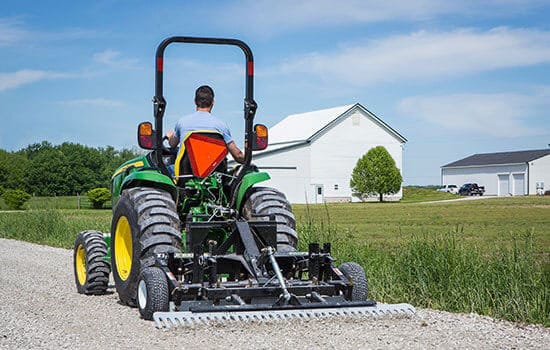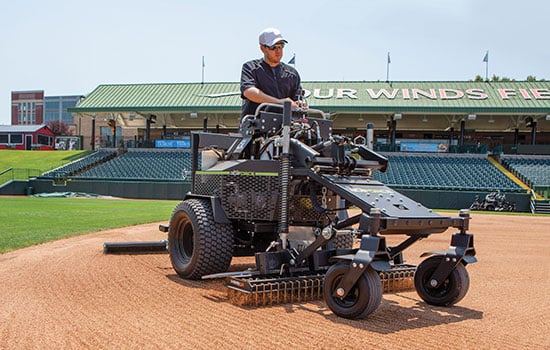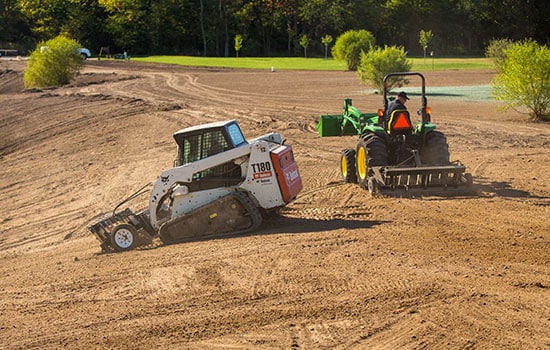How to Minimize Flies and Manure Stink – ABI Dirt
What To Do About Barn Fly Control and Manure Smells?
Are you running into the nuisance of barn flies and excessive manure smells? In this episode, Matt talks about the importance of manure management—from picking stalls to intentional spreading—and how it can not only help with fly control and manure smells, but also keep your animals safe from disease and infection.
ABI Products Shown In This Video
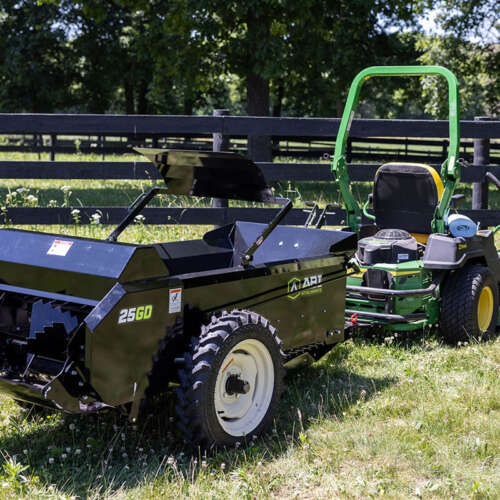
25ft³ Compact Ground Driven Manure Spreader
- 4-Speed - Ground Driven
- For Lawn Tractor, ATV, UTV, Golf Cart, or Sub-Compact Tractor - Up to 4 Horses
- Starting At: $116/mo.*
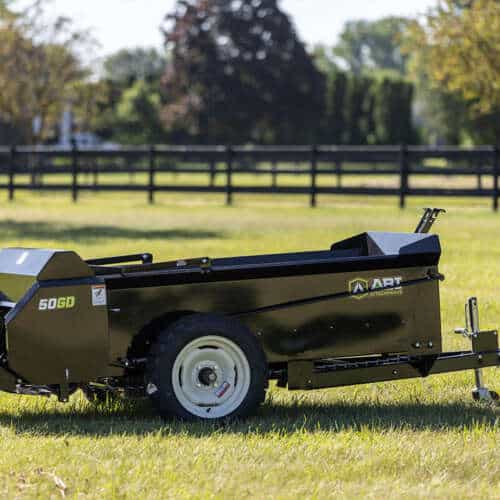
50ft³ Ground Driven Manure Spreader
- 4-Speed - Ground Driven
- For ATV, UTV, or Sub-Compact Tractor - Up to 8 Horses
- Starting At: $139/mo.*
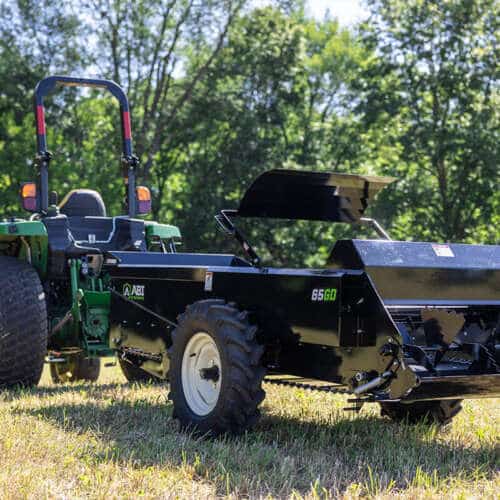
65ft³ Ground Driven Compact Manure Spreader
- 4-Speed - Ground Driven
- For AWD UTV, Compact or Subcompact Tractor - Up to 11 Horses
- Starting At: $161/mo.*
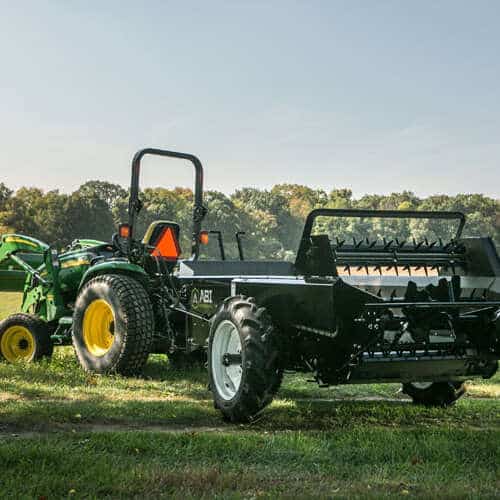
85ft³ GD – Mid-Sized Manure Spreader
- 4-Speed - Ground Driven
- Min Tractor HP: 25+ HP - Up to 15 Horses
- Starting At: $229/mo.*
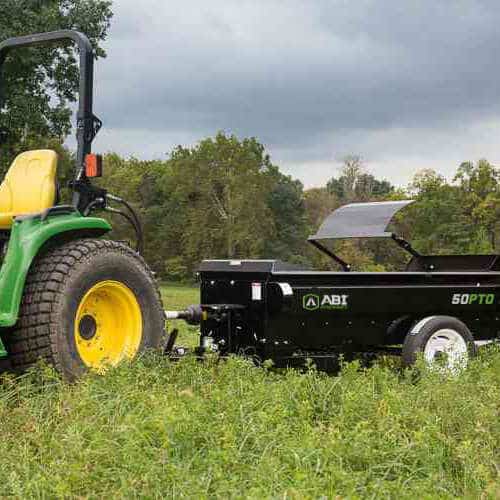
50ft³ PTO – Compact Manure Spreader
- 4-Speed - PTO Driven
- Min Tractor HP: 22+ HP - Up to 8 Horses
- Starting At: $161/mo.*
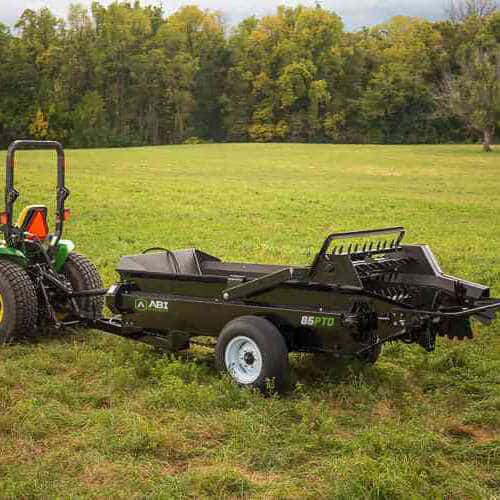
85ft³ PTO – Mid-Sized Manure Spreader
- 4-Speed - PTO Driven
- Min Tractor HP: 25+ HP - Up to 15 Horses
- Starting At: $240/mo.*
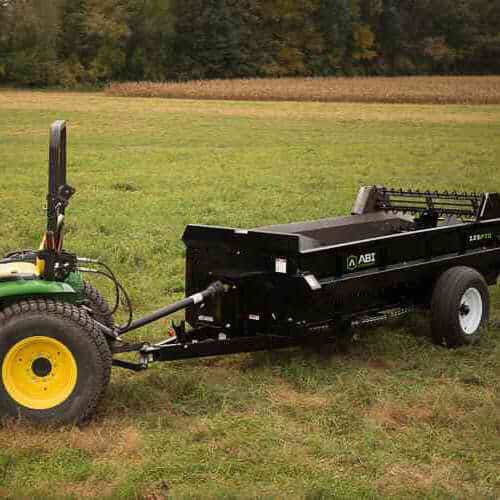
125ft³ PTO – Large Manure Spreader
- 4-Speed - PTO Driven
- Min Tractor HP: 35+ HP - Up to 22 Horses
- Starting At: $286/mo.*
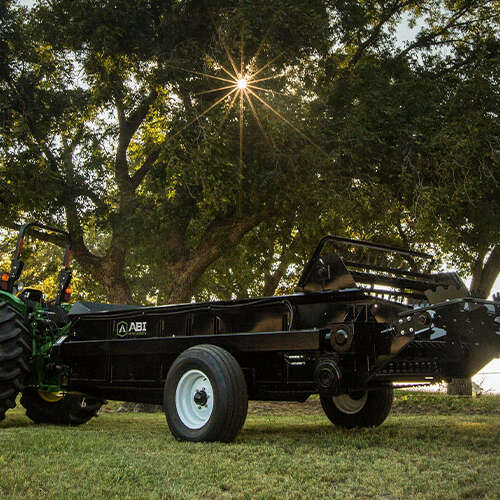
185ft³ PTO & Hydraulic – Largest Manure Spreader
- Variable-Speed - PTO/Hydraulic Driven
- Min Tractor HP: 50+ HP - Up to 35 Horses
- Starting At: $376/mo.*
Transcript
Hey, everyone, Matt here with ABI Attachments. Welcome back to another episode of the ABI Poop. Today, we are talking about dirt. Hang on, that’s not right. Here at the end of summer, sorry, yeah, somebody had to say it, we’re nearing the end of summer, with all the heat and brightness, a lot of you are facing on your properties right now, if you’ve got animals around the farm, just excessive flies and some overwhelming stink that comes from manure piles like this one. And both of those issues can be hazardous to the health of all living creatures on your property, not just your animals, but you as well. And so that’s the topic of “The Dirt” today is talking about what you can do to take control of barn flies and stink that you’re dealing with.
Best Fly Control for Manure Pile
So everyone knows that flies around a property and manure around a property when you got animals, it’s just par for the course. But it can actually be a misconception that excessive flies and stinky manure is just a farm nuisance. Because those two factors around your property could actually be an indicator of some deeper problems that you really don’t wanna mess with. In fact, we included in the description of this video below an article that talks about some really significant problems that can arise if you’ve got too many flies around your barn and around your farm property.
Clean Manure In the Stalls As Quickly As Possible
And you already know that when it comes to manure in the stalls, you’ve gotta get it cleaned out as quickly as possible. It’s something that we don’t like talking about, right? I mean, not too many people love clearing the stalls in the morning. But we know you gotta get those cleaned out on a regular basis to avoid the hoof rot.
Work on Your Manure Pile to Turn It Into Compost
But even if your clearing your stalls regularly and you’ve got a pile going outside, if you’re not processing that pile of manure like the one behind me here, if you’re not regularly working with that manure pile to turn it into compost or regularly spreading it out on your pasture and leveraging those pasture rotation techniques, you could be facing some diseases and infections for your horses that you could avoid. So let’s talk about what you can do, then.
Picking, Shredding, and Spreading Manure
And I’ve kinda hinted at two different options you’ve got right out the gate. If you’ve got the property, if you’ve got enough pasture ground, you can pick directly from your stall, get it inside of a manure spreader that shreds the manure as finely as possible so you can put that fine layer of manure down on that portion of the pasture that you’re not having your horses graze on right now, right, using the pasture rotation method. But when you spread that manure finely onto your pasture ground after it’s been chopped up and shredded really nicely by a great, high-quality manure spreader, then those small chunks of manure now can be heated by the sun, get that temperature up so the fly larva can’t grow. Let the rain wash the nutrients into the soil. The manure dries out, and now you’ve get brown gold for the pasture.
Turn Your Manure Into Black Dirt
Or your other option, like the property here, rather than spreading every single day, because there’s not a whole lot of pasture on this property, they like to compost it up. And so, pile it up, rotate the pile on a regular basis, so that that manure can break down. You basically have some great black dirt by the time you’re done with the composting process, and now it enriches the pasture ground even more quickly, because it’s already done that great decomposing work. And these are just two of the many ways that you can process the manure on your property to keep the flies down, keep your horse healthy, keep yourself healthy.
Best Barn Fly Control for You
So which way is right for you? Well, it depends on a lot of factors, actually. How much land do you have available? How much pasture ground? How often do you spread your manure? How often do you wanna spread your manure? How often do you clean out your stalls? How many stalls do you have? What are your local regulations? How many animals do you have on your property? Lots of questions there which is why we have here on site, I mean, not here on site, like back at the shop, back at the shop on site, we’ve got a whole team of product specialists that really know their poop and are happy to talk about things. This is what we talk about really all day long. We talk about poop all day . And so we would love it if you gave us a call, ask us those questions so we can help you figure out what is right for you, what manure management plan is going to work best in your context, and how can we keep those flies and stink down.
That’s all I’ve got today, everyone. If you’ve got a funny manure or manure spreader story that you’d like to share, drop it in the comments. We’d love to hear from you. Or if you have other questions about manure management plans or the manure spreaders we have available, drop those questions in the comments as well. We’d love to hear from you. We’d love to answer your questions. And in order to hear the answers to the questions you’re asking, make sure to subscribe to the channel so we don’t miss each other. See you next time, everyone.
